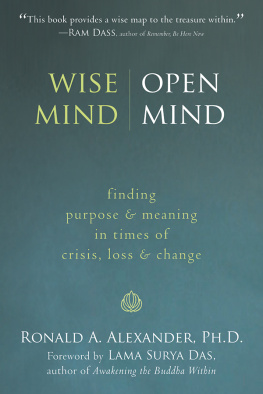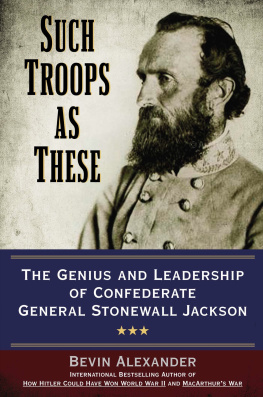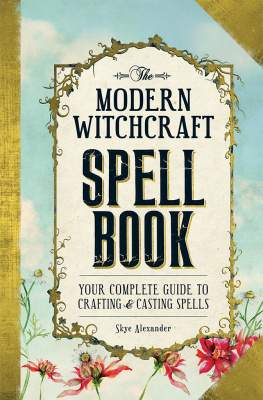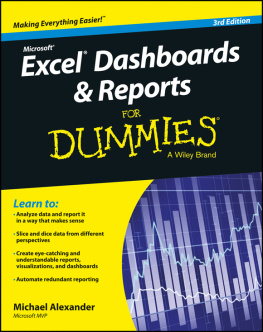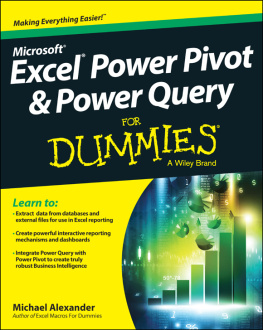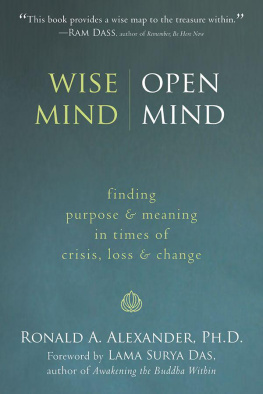Acknowledgments
I wish to thank the following individuals for their help in birthing this book: Nancy Peske, for bringing out the expression of my ideas through her extraordinary skills in editing, simplicity, and organization, a combination without which this book wouldnt have been possible; Catharine Sutker, acquisitions editor, for bringing me to New Harbinger and for loving this book, Jess Beebe and Nelda Street for their editing skills, and all the other folks at New Harbinger; Jilisa Snyder, Ph.D., for her invaluable feedback as an outside reader; Lama Surya Das for his kindness and Buddha generosity in writing the foreword to this book; Scott Edelstein, my fabulous literary attorney, a constant source of advice and reflection; Robert Gurette, MD, for bringing me to New England Educational Institute to offer my teachings and assisting to shape my skills as a speaker with detailed persistence; Jeffrey Hutter, Ph.D., my co-teacher at UCLA Extension, who made it possible for us to offer Zen and mindfulness programs at the university over the past thirty years, as well as Marion Solomon, Ph.D., for her inspiration and encouragement to write and her innovation in bringing to UCLA the Conference on Mindfulness and Psychotherapy; and all of the faculty, students, and administrators at Pacifica Graduate Institute, Pepperdine University, and Ryokan College.
I would like to thank my writers wisdom council of support for their wisdom, creativity, and inspiration all along the way: Joel Belsky, Ann Maria Dunne, Pamela Fields, Ph.D., Bill OHanlon, M.A., Catherine Ingram, Carl Kugel, MA, Jay Levin, MA (founder of LA Weekly), Judith Orloff, MD, Charlotte Resnick, Ph.D., Sebastian Lampe, MS, and especially Alberto Villoldo, Ph.D., for his friendship and guidance with this project.
I would also like to thank Tara Brach, Ph.D.; Daniel P. Brown, Ph.D.; Jim Blechman, MD; Karen Bohan, MA; Georgina Cannon, M.NLP; Jim Clancy, MA; Michael Conforti, Ph.D.; Ram Dass; Vera Dunn, Ph.D.; Ken Dychtwald, Ph.D.; Milton Erickson, MD; Suzanne Evans; Rhonda Gibson; Susan Golant, MA; Elisabeth Halfpapp; John Heider, Ph.D.; Elisabeth Hoffmeister, Diplom.; Derek Ireland; Stephen Johnson, Ph.D.; Anita Jung, MS; Sandy Levine; Jenny Boyd-Levitt, Ph.D., for an a up-close glimpse of the magical musical creative; Teri Lindeman, MA; Alan Meskil, Ph.D.; Carol Meskil, MA; Lisa Morcolli-Latham for her creative eye and her work behind the camera; Rasmani Deborah Orth, Ed.D.; Erving Polster, Ph.D.; Marjorie L. Rand, Ph.D.; Shiva Rea, MA; Jeffrey Trop, MD; Tsoknyi Rinpoche; Stuart Twemlow, MD, Ph.D.; Sharon Salzberg; Estelle Shane, Ph.D.; Jeni Tyson, Ph.D.; David Van Nuys, Ph.D.; Gordon Wheeler, Ph.D.; and a special note of appreciation to Nancy Lunney-Wheeler, MA, at Esalen Institute, who saw my potential.
Thanks to all my patients, students, and trainees, whove taught me so much; to my three wonderful assistants, whove labored with my notes and graphs throughout the years: Rhonda Bryant, Diane Carter, and Debra Yates; and to Dana Felice, for her excellent effort, focus, efficiency, and divine inspiration. To all of my teachers, guides, and friends who assisted me in opening the doors of perception, I am forever thankful and filled with your grace.
Ronald A. Alexander, Ph.D., is a psychotherapist, leadership consultant, and clinical trainer. He is also director of the Open Mind Training Institute in Santa Monica, CA, an organization that offers personal and professional training programs in integrative mind/body therapies, transformational leadership, and mindfulness.
A leading pioneer in somatic psychotherapy, holistic psychology, mindfulness, leadership coaching, and integrative and behavioral medicine, Alexander conducts professional and personal trainings throughout the United States and internationally. He is an extension faculty member at the University of California, Los Angeles and an adjunct faculty member at both Pacifica Graduate Institute and Pepperdine University. Alexander is an associate member of the American Psychological Association, a clinical member of The California Association of Marriage and Family Therapists, and a diplomate in professional psychotherapy at The International Academy of Behavioral Medicine, Counseling, and Psychotherapy and The American Psychotherapy Association.
Foreword writer Lama Surya Das is a leading Buddhist teacher, founder of the Dzogchen Meditation Center, and author of Awakening the Buddha Within and many other books and articles. For more than ten years, he has written the Ask the Lama column at www.beliefnet.com.
Part I
Preparing for Creative Transformation
Chapter 1. The Three Steps to Creating a Mandala for Your Life
You see things, and you say Why?
But I dream things that never were, and I say, Why not?
George Bernard Shaw
In Buddhism, a mandala is a beautiful, intricate, circular sand painting of many colors that depicts the relationships among the celestial bodies in the cosmos and represents the turning of the wheel of fortune. Jungians say a mandala can be a depiction of the parts of the self, united in harmony and balance. Its an exquisite symbol that visually renders the cycle of life, from birth to death to birth again. Yet, after spending countless hours creating this work of art, the one who has designed it and meticulously laid the colored sand will sweep it away, obliterating the carefully constructed lines. As the image of the mandala fades into memory, its creator reflects on the impermanent nature of everything we experience.
When dramatic shifts occur in our lives, we can become nearly paralyzed with fear, anger, grief, and resentment. We enter a state of shock and forget that with loss comes rebirth. On some level, we understand that we must design a new life, a new mandala, but we struggle between trying to figure out what we want to do next and being overwhelmed by the intense emotions associated with loss. Clinging to the past, we resist the opportunity to embrace the creative process that requires us to let go of the minds limited way of thinking about ourselves and the situation at hand. But if we can find the courage to enter this process, to experience the state of consciousness Buddhists call open mind, accessing our deepest, or core, creativity, we can begin to tune in to what we most want for ourselves. You can ensure that your new life is in sync with your deepest values. You can let go of your attachments to what was and what you thought would be. You can choose to let go of fear and trust that a palette of many colors, some of which you may never have seen before, will be available for creating a new mandala: a new life of beauty thats in harmony with the song of the soul.
A Creative Transformation After Tragedy
A few years ago, a couple named Mark and Selena came to me on the advice of friends, asking me to be their therapist and help them cope with the most devastating of losses: their two young children had been killed in a car crash when their teenage babysitter, who was driving, took her eyes off the road, crossed the centerline, and caused a head-on collision at sixty miles an hour. The babysitter had somehow survived, but Mark and Selena were overwhelmed with guilt, anger, and feelings of loss. They could barely function and couldnt begin to imagine how they could go on without their children or why they would want to. Although they couldnt have anticipated the accident that took their childrens lives, they still felt crippling guilt, profound sorrow, and bottomless grief. They revisited that fatal day over and over again in their minds, obsessing about what mightve been if they hadnt left the children in the babysitters care. Only the repeated urgings of their closest friends brought them to my office to begin to work through their suffering.

